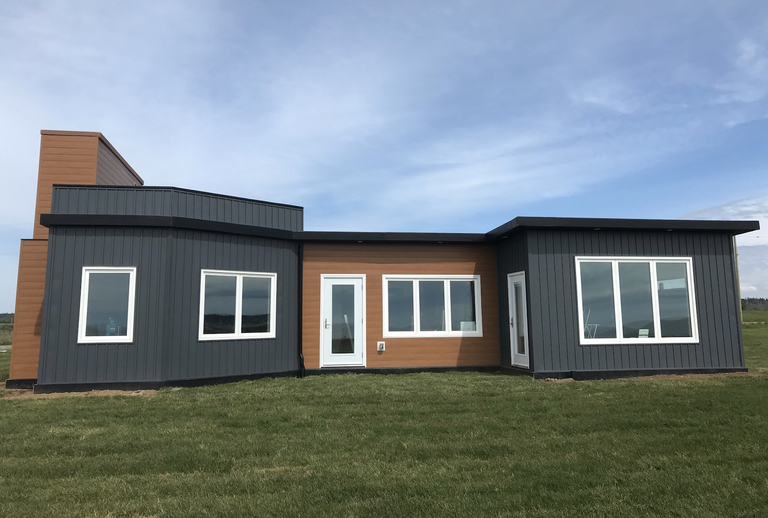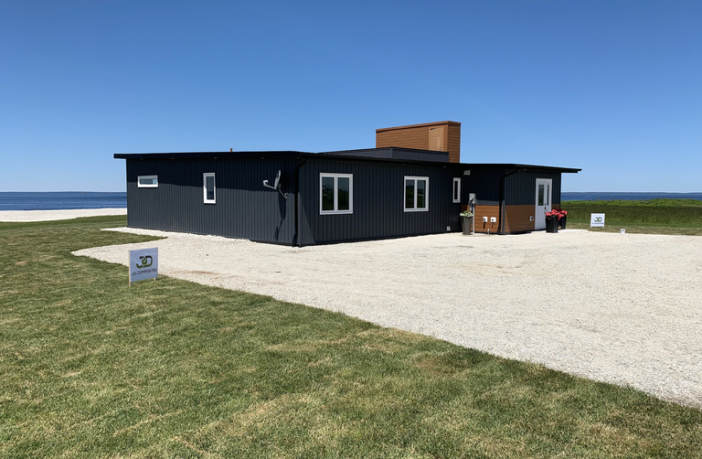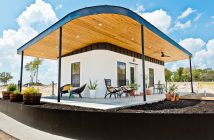- Canadian startup JD Composites has recently announced the completion of a concept house made from more than 600,000 recycled plastic bottles.
- The builders broke down bottles and turned into foam that hardens when cooled. This foam was used to create the walls.
With three bedrooms and two bathrooms occupying approximately 2,000 square feet, Beach House comprises 184 prefabricated panels made entirely from recycled PET foam from Ontario-based Armacell.
The project cost approximately US 375,000 to build. Designed to withstand hurricane-force winds, the structure will serve as a rental unit as the team assesses its durability and wear over time.
Ultimately, JD Composites co-founders David Saulnier and Joel German plan to sell the house. “Our idea isn’t to make custom homes for couples looking to build a new dream home,” German told New Atlas. “Our goal is to get in line with projects that allow for volume sales—smaller dwellings, shelters, sheds, offices, sleeping barracks. Disaster relief shelters are definitely on our radar.”

Credit: JD Composite
The recycling process includes shredding and heating the water bottles to form plastic pellets and placed them into a hopper, where they were treated with gases that melted them into a foam. When cooled, the foam becomes solid and is rot- and mildew-resistant. The builders then used the polyethylene terephthalate (PET) panels to create the 5.9-inch-thick walls of the green home.
Author: Bryan Groenendaal











